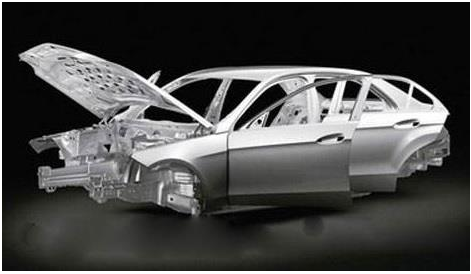Introduction:
When it comes to choosing the right material for various applications, one often comes across the debate between cast aluminum and cast iron. Both materials have their unique advantages and disadvantages, making it essential to understand their characteristics and compare them before making an informed decision. In this article, we will delve into the properties, benefits, and drawbacks of cast aluminum and cast iron, ultimately determining which material reigns supreme.
Properties of Cast Aluminum:
Cast aluminum is a lightweight material known for its excellent strength-to-weight ratio. It offers high corrosion resistance, making it ideal for outdoor applications. Additionally, cast aluminum provides good thermal conductivity, allowing heat to dissipate quickly, making it suitable for applications such as engine blocks and heat exchangers. Aluminum is also highly malleable, allowing for intricate designs and complex shapes during the casting process.
Benefits of Cast Aluminum:
One of the significant advantages of cast aluminum is its weight. It is significantly lighter than cast iron, making it easier to handle and transport. Moreover, its corrosion resistance ensures durability, even in harsh environments. Cast aluminum also boasts excellent thermal conduction properties, enabling efficient heat transfer. Furthermore, the material\’s malleability allows for intricate detailing and design flexibility, making it an appealing choice for various industries.
Drawbacks of Cast Aluminum:
While cast aluminum offers numerous benefits, it also has some drawbacks. One of the main limitations is its lower strength compared to cast iron. Aluminum may not be suitable for applications that require heavy loads and extreme durability. Additionally, cast aluminum tends to be more expensive than cast iron, which can be a deciding factor for budget-conscious projects. Finally, the high melting point of aluminum makes it more challenging to cast, requiring specialized techniques and equipment.
Properties of Cast Iron:
Cast iron is a strong and durable material that is known for its excellent heat retention capabilities. It offers high compressive strength, making it ideal for structures that require load-bearing capacity. Cast iron is also highly resistant to wear and tear, making it suitable for applications where longevity is crucial. Its low melting point allows for easy casting and shaping.
Benefits of Cast Iron:
One of the significant advantages of cast iron is its exceptional strength. It can withstand heavy loads, making it suitable for applications such as engine blocks and construction materials. Cast iron’s ability to retain heat for extended periods is another benefit, making it ideal for cooking utensils and stoves. Additionally, cast iron is an affordable material, making it a popular choice for many industries.

Drawbacks of Cast Iron:
Despite its strengths, cast iron also has certain drawbacks. Its high density makes it significantly heavier than cast aluminum, making it less suitable for weight-sensitive applications. Cast iron is also prone to corrosion, requiring regular maintenance and protective coatings to prolong its lifespan. Moreover, its low thermal conductivity may lead to uneven heat distribution in certain applications. Lastly, the brittleness of cast iron makes it susceptible to cracking under high stress or impact, limiting its use in certain load-bearing applications.
Conclusion:
Both cast aluminum and cast iron have their own distinct properties, benefits, and drawbacks. Cast aluminum, with its lightweight nature, corrosion resistance, and design flexibility, is an excellent choice for applications where weight and intricate detailing are crucial. On the other hand, cast iron’s exceptional strength, heat retention capabilities, and affordability make it the material of choice for heavy-duty, load-bearing applications. Ultimately, the choice between cast aluminum and cast iron depends on the specific requirements and constraints of the project at hand.
-

- Cassa di trasferimento per ricambi auto in pressofusione in lega di magnesio
-

- Parti e componenti lavorati a CNC
-

- Pressofusione in lega di magnesio Ricambi auto Alloggiamento RDM
-

- Parti UAV tixomolding in lega di magnesio pressofusione
-

- Parti pressofuse in lega di magnesio ad alta precisione per blocchetti di accensione per autoveicoli
-

- Parti in lega di magnesio Thixomolding per alloggiamento macchina di aspirazione dell'ossigeno

 0086-750-5616188
0086-750-5616188 +86 13392089688
+86 13392089688 sales@zhongmei-tech.com
sales@zhongmei-tech.com







